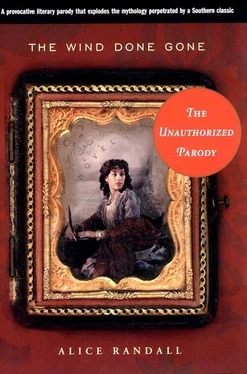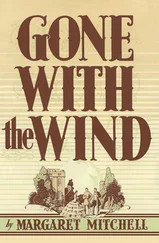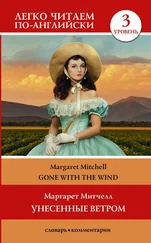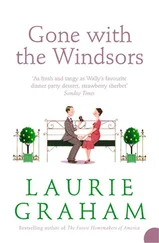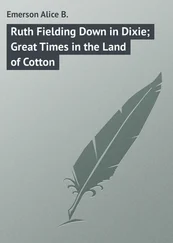Sy called her Mammy. Always. Some ways I like that. Some days when it was kind of like we-she and me-had a secret against them, the planting people, I like it. Different days, when it feels she wasn't big enough to have a name, I hate it. I heard tell down the years they compared her to an elephant. They shouted down to their ancestors: She was big as an elephant with tiny dark round eyes. But she wasn't big enough to own a name. To me she was big as a house. Big as two houses. I'd be scared to be that.
Scared to be bigger than a minute and a snap of dark fingers. "She's no bigger than a minute," Mammy would say, snapping her thick, strong-as-branches fingers, stealing words from him whose watch Garlic inherited. Him who was my Daddy and never gave her or me nothing like time, Planter.
Anyways, Mammy's eyes are big, just like mine. Garlic used to tell me that all the time. Garlic was Planter's valet, and he liked women with great big legs. If I ever started to get big, R. would let me go.
Even Other called Mammy out of her name. Other, who loved my mother; Other, who ran to her Mammy like I never seen nobody run to anybody, or anything, for the more significant matter, ran to Mammy like she was couch and pillow, blanket and mattress, prayer and God. Other rested her head on Mammy's brown pillow breasts, snuggled in beneath a blanket of fat brown arm, breathe in the prayer of Mammy's breath and out the god of her presence, never came to know there was any reason to give Mammy Planter's watch. So Garlic got it. Garlic wears it. Other owns Mother by more than ink and law.
THIS is my book. If I die tomorrow, nobody'll remember me except maybe somebody who find this book. I read Uncle Tom's Cabin. I didn't see me in it. Uncle Tom sounded just like Jesus to me, in costume. I don't want to go in disguise. I don't want to write no novel. I'm just afraid of forgetting. I don't talk to anybody save Beauty and a few folks, so nobody remembers what I am thinking. If I forget my real name, won't be anybody to tell it to me. No one here knows. I'm going to write down everything. Something like Mr. Frederick Douglass.
R. visits my house more now, much more than he did before he quit Other. These days the sun sets with him sitting on my long wide porch turned toward the side yard Many nights now, he sleeps here. He says, "I love this house." I say, "You designed it." I don't say, "And you paid for it," but that's another reason to love a thing. He says, "It's quieter than the other house." He doesn't speak her name. The architecture of my home is a bow to R. and what he remembers of the houses of Charleston. I don't want to remember anything of Charleston at all, but the houses were cool, and R. wouldn't approve a cupola for the hot air to rise into, so I have turned my house away from the street.
It's a pity my street sees only the short side of me. It's a lovely brown street that didn't exist, even in dreams, before the war. There's a new church for the colored, First Congregational, a colored druggist, colored grocers, colored undertakers, colored schoolteachers down from Canada. Thanks to white women who want to improve the lot of what they are always calling "our children," R. is not, when he stays over, the street's only white resident. And I'm not sure how long he will be its only millionaire. There's a dusky man lives on this road who sells insurance. Many folk believe that man will someday soon be a millionaire. And there's more than one university for colored people springing up. With R. here more, I miss some of the neighborhood gossip, but I catch some from across town. There's a drink like something a root doctor would make, dark, with bubbles all sugared up to keep the swamp taste down, and the white folk are paying plenty pretty money to drink it. I've never tasted it. Only white folk go into the pharmacy where they sell it. R. says he's going to bring me a taste.
I almost never hear from Cotton Farm. More and more rarely someone will stop by my kitchen window and call, "Homefolks say hey." They can't write, and I don't expect them to. So when the letter came, I was afraid of tearing its seal.
Mammy is dying and she want me to come home before she go. I ain't saying yes, and I ain't saying no. I'm saying, I ain't stood on Cotton Farm since I was still saying ain't, and I don't know if I want to go back there.
Mammy is dying surrounded by home folks I got no feet to take me there. Mammy is dying and I don't want to go home. No more than she ever wanted to come see me under this fine roof. Mammy is dying and I want to touch her but I don't want her to touch me.
I'm going to die one day; this is telling me that. When I was a girl, I say to myself, "I won't hold you when your hair turn gray and your skin turn gray, when your eyes glaze over blue like old folks' eyes do. I won't make a pillow for your head. I seen rheumy eyes like hardboiled eggs, deep green circles glazed over white, and I think those will be your eyes one day. I won't hold you and I will never eat eggs again." Like a prayer of protection I said those things, and now it is not the threat I meant it to be. It's just a prescient prophecy, just a curse on me.
Mammy, Mama, I have no more idea how to hold you old than you had how to hold me young. All I got is ambition to love you more than you loved me.
Last night I dreamed of Cotton Farm.
I was serving at table, pulling the silken cord of the shoofly as guests dined, as they spoke of shopping in New Orleans, of buying furniture, and wallpaper, and silver. As they ate Mammy's dinner, I pulled the cord again and again; the cord pulled the silk brocade flap cantilevered above the table and fanned the guests from Savannah and Annapolis. As I performed my duty, I heard planters speak of turning cotton into silver. Someone pronounced "alchemy of slavery," and a shining coffeepot, candlesticks, and saltcellars changed before my dreaming eyes into little piles of cotton balls flecked with seed. Then I looked at my arms, and they changed too. The two golden brown little hills, one in the top of each of my arms, grew into little mountains as I pulled the cord and Mammy smiled, passing the green beans.
As I continued to fan and the guests continued to eat, Other appeared at the table, and the wallpaper began to move. In my dream, just as in life, the dining room wallpaper is painted all over with the story of Telemachus, in the land of the enchantress Calypso, searching for his father, Odysseus. Garlic once told me he had seen paper just like it in the home of President Jackson. I didn't believe him. Presidents don't invite folk like Planter to dinner. At eleven I'd seen enough of "the quality" to know that. But I liked his story. And in life I liked the wallpaper. In my dream it wouldn't stop moving, and I started to hate it. Didn't I know what it was like to live in the land of an enchantress and to long for your father?
My eyes turned from the wallpaper to the windows, my arm still pulling, still fanning. There were many windows. The house was built to let the outside in, the fragrance of peach and plum, the outside light after it is tinted by the colored glass of the windows. But I am inside looking out, toward the distant cabins.
Through the pink glass I see black smoke from a cabin chimney. I see into the cabin itself: I see a baby gently rocked in the arms of her mother.
I am still fanning as my mother serves Other a choice piece of dark meat. There is a painted porcelain bonbon dish on the sideboard behind them. It falls from the sideboard and shatters. Over and over it falls. And I keep fanning.
I wake up screaming. R. says, Strong meat tastes sweet.
of I go back there, I'm going to get my Daddy's watch and have it engraved to read, TO R.B . FROM M.E. I don't feel like laughing, but I can just see R. laughing at my joke. I can just see him open the satin-lined leather box. He'll understand; he expects me to play with letters. He taught me how to read in bed. I praised him for it. His stomach was my first paper, lip rouge was my pencil, and the cleaning rag was my tongue. We learned me well. R. gave me the tools. I learned to write, right on his belly.
Читать дальше
